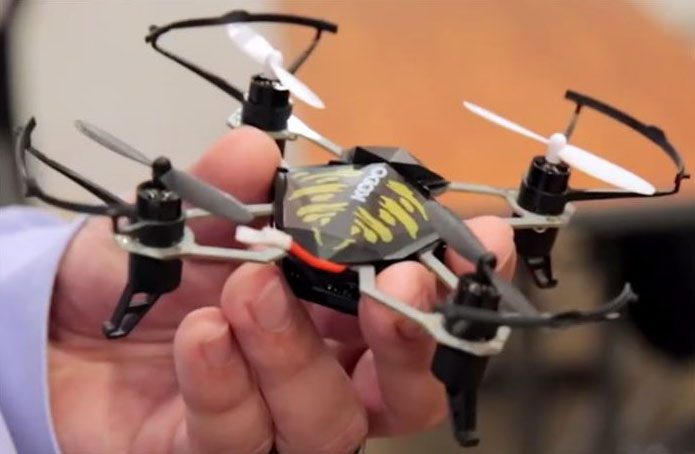Summary
The Dromida Kodo is a simple, micro-sized system that represents a very affordable option to a novice operator, but it does not provide useful function beyond multirotor familiarization or recreation, making its overall suitability low. The system scored higher than average for pricing (less-expensive; top-scorer) and accuracy and availability of reported values; and less than average for maximum speed (not reported or observed), endurance, payload capacity (not reported), camera quality, communication range, utility, critical metrics, construction quality, operational ease, and user support. While the system does provide for video and imagery capture, it is stored locally, only accessible after the flight, and the quality of the content is very low. The Kodo’s extremely small aircraft and controller sizing, limited range, and instability make it a challenge for inexperienced users to operate, especially in moving air (e.g., wind or air conditioning). Despite these shortcomings, the system is the least expensive option, has the second-best cost-effectiveness score, can be charged using a USB adapter, and can provide enjoyable flight indoors, once responsiveness of the aircraft control has been mastered.
Features
- Video and imagery recorded to onboard MicroSD
- Three-axis gyroscopes and accelerometers
- Rugged, crash-resistant molded plastic airframe
- Controller featuring Secure Link Technology (SLT), dual rates, three flight modes
Additional Specs
- Endurance: 6 mins
- Maximum Photo Resolution: 1.2 MP
- Video Resolution: 480p
- Price: $83.97 USD (as tested)
- Communication Range: 164.04 ft
- Battery Capacity: 390 mAh
More information at the Dromida website.

Strengths
- Durable construction
- Some accommodation for users of varying levels; basic represents a compromise between agility and stability, while advanced settings are very aggressive
- Acceptable level of documentation, given capability and cost
- Ready to operate, as purchased
Weaknesses
- Very easy to overcompensate in control, can rapidly lose control if not experienced; difficult for a novice to operate
- Miniature controller can be useful for portability, but present a challenge for users
- Substantially reduced operational range due to communication range and micro size (limits VLOS); very easy to lose communication link
- Does not feature any observable stability augmentation
- Heavily affected by moving air (e.g., winds or air conditioning)
- Lowest reported endurance, MTOW, communication range, and camera quality of all systems tested (6.00 minutes, .11 lbs, 164.04 ft, and 480p/1.2 MP)
- Lowest assessed operational ease and user support of all systems tested (35.05% and 45.32%)
- System is more of a “toy,” rather than functional sUAS
- Maximum Speed and Payload Capacity (assumed to be zero) not published

